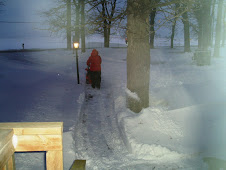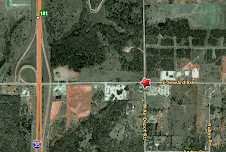Isaac Charles Parker (1838–1896) served as federal judge for the Federal Court of the Western District of Arkansas in Fort Smith. He tried 13,490 cases, with 9,454 of them resulting in guilty pleas or convictions. His court was unique in the fact that he had jurisdiction over all of Indian Territory, covering over 74,000 square miles. He sentenced 160 people to death, including 4 women. Of those sentenced to death under Parker, 79 men were executed on the gallows.
Born on October 15, 1838, in Barnesville, Ohio, he was the youngest son of a farme. His mother was known for her strong mental qualities, business habits and strong Methodist upbringing. Parker attributed his success to the way he was raised by his mother. Once he completed his primary education, he attended Barnesville Classical Institute, a private school and taught in a country school to pay for his education.
At 17, he decided to study law and apprenticed under a Barnesville lawyer, studied on his own, and passed the bar in 1859. He began his legal career with his uncle in St. Joseph, Missouri, and by 1861, he was on his own. He married Mary O'Toole on Dec 12, 1861. He won election as the city attorney on the Democratic ticket in April 1861, but had been in office only a few days when the Civil War broke out. He enlisted in the Sixty-first Missouri Emergency Regiment, a home guard unit for the Union forces.
Breaking from the Democratic party, Parker ran for county prosecutor of the Ninth Missouri Judicial District on the Republican ticket. He also served as a member of the Electoral College (he cast his vote for Abraham Lincoln) in the election of 1864. He served 2 terms in Congress, elected in 1870 and 1872. While in Congress, he assisted veterans of his district in securing pensions, lobbied for construction of a new federal building in St. Joseph, sponsored legislation that would have allowed women the right to vote and hold public office in US territories.
He also sponsored legislation that would have organized the Indian Territory under a formal territorial government. It was during his second term that his speeches supporting the Bureau of Indian Affairs received national attention. He put most of his effort into Indian policy and the fair treatment of the tribes that were living in the Indian Territory. It was after his second term in Congress that he began to seek a presidential appointment as judge of the Western District of Arkansas in Fort Smith. On March 18, 1875, President Ulysses S. Grant appointed him to the position.
Parker arrived in Fort Smith on May 4, 1875, and held court for the first time on May 10, 1875. During his first term, he found 8 men guilty of murder; 6 of them died on Sept 3, 1875, on the gallows at Fort Smith.
Parker’s court was supposed to hold 4 terms each year: February, May, August, and November. However, the caseload was so large that the 4 terms ran together. Parker held court 6 days a week, each day often lasting up to 10 hours.
In 1883, Congress gave jurisdiction of some portions of the Indian Territory to Texas and Kansas, providing some relief to Parker’s court. There was, however, a continuous stream of settlers into the Indian Territory, over which he still had jurisdiction, and the crime rate increased.
Over the years, Parker became involved in the community of Fort Smith. At his urging, the government gave the majority of the 300-acre military reservation to the city in 1884 to fund the public school system. He also served as the first board president of Saint John’s Hospital, and he was active on the school board. His wife was also involved in social activities, and their sons, James and Charles, attended the public school which their father had helped to establish.
Along with his duties on the bench, he was often called to testify in front of Congress or substitute for other federal judges. He not only heard capitala cases, but tried several civil cases.
On February 6, 1889, Congress took the circuit court authority from the federal court at Fort Smith and allowed the US Supreme Court to review all capital crimes. Until this time, the president was the only person with the power to commute sentences; however, now the Supreme Court could overturn cases as well. The Courts Act of 1889, established a federal court system in the Indian Territory, again decreasing the size of Parker’s jurisdiction. The Supreme Court began to reverse the capital crimes tried in Fort Smith; 2/3 of the cases that were appealed were sent back to Fort Smith for a new trial.
Often called the "Hanging Judge,” at the time, capital offenses of rape and murder were punished by death. However, it was not for the judge to decide guilt, that was left up to the jury. Parker actually had no say in whether a person was to be hanged.
In an interview published on Sept 1, 1896, in the St Louis Republic, Parker is quoted as saying, “I never hung a man. It is the law,” adding, “I favor the abolition of capital punishment, too. Provided that there is a certainty of punishment, whatever that punishment may be. In the uncertainty of punishment following crime lies the weakness of our ‘halting crime.’”
When the August 1896 term began, Parker was too ill to preside. Reporters interviewing Parker about the end of his jurisdiction over Indian Territory had to do so at his bedside. Parker died on November 17, 1896, of numerous health problems, including degeneration of the heart and Bright’s Disease. He is buried in the Fort Smith National Cemetery.
















No comments:
Post a Comment